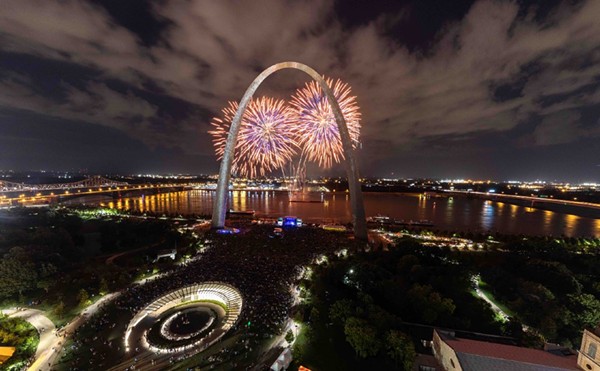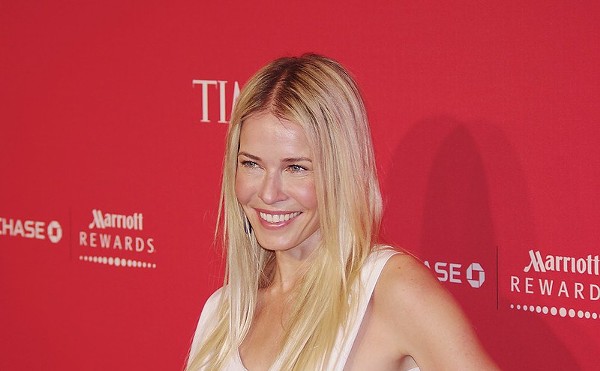"I remember being in the mountains in Jamaica once," says Tom "Papa" Ray, renowned harmonicat and co-owner of Vintage Vinyl. "I was up in an area called the Cockpit, 'cause the easiest way to get there would be to fly. This was 1981, and I went up toward this marooned town -- this is in a part of the island that's autonomous, it's so remote -- the first guy that walks up to me looks at me and was not unfriendly, just being matter-of-fact, and says, 'CIA?' Just the assumption of a white American being there. And I said, 'No, musician.' And I happened to have in my pocket a harmonica that was in the exact key as the music that was playing on the radio. I played three notes and held them, and five minutes later was being introduced to the local chief."
The circumstances here in St. Louis aren't nearly so dramatic, but the effects of a well-played harmonica are no less life-affirming. That's why Ray is one of the organizers and participants in Harp Attack, our town's more-or-less annual event -- this year's edition is the 13th show in 15 years -- to see that the harmonica gets its due.
"When we started this, we basically viewed it as a party," Ray says. "To me, the harmonica is the most human-sounding instrument, and there are some very, very expressive players in St. Louis. As the saying goes, though, there's no honor for a prophet in his hometown. Nobody else wanted to do this, so the harmonica players get together and do it themselves once a year and invite the people out. And we always get a full house."
This year should be no exception, given the range of harp players on the bill. They include the Blue City Band's Keith Doder, Glenn Changar of the Hitmen, the Soulard Blues Band's Jim McClaren and Mojo Syndrome's Eric McSpadden, as well as Sandy Weltman, Jon Erblich and Ray himself. In a significant change from Harp Attacks of the past, the featured musicians will perform with their own acts rather than use a single backing band for the entire evening. In addition to the aforementioned bands, Weltman will perform with Beth Tuttle, Erblich with Brian Curran, and Ray with the reggae band Kpongolo.
"We thought, let's change it up this time and let everybody bring their own band," Ray says. "We've always had really stellar backup bands, but we thought this way would make for a great show. You get a fresh band up there for each player, and everybody just blazes for half-an-hour."
Ray, who grew up in an area of the South where his only access to harp heroes such as Little Walter and Jimmy Reed was listening to records and who has been playing the harmonica for 30 years, is quick to extol the quality of players you can and should see in St. Louis on a regular basis. "Sandy Weltman is an extremely versatile musician who studies a style of harmonica playing that basically involves being able to play an entire chromatic scale on a diatonic harmonica. He's definitely a non-blues player. Some of his stuff is almost world-music-ish. How to put it? He's doing 20th-century music. Keith Doder, meanwhile, has over the years been one of the great traditionalist blues-harp players in town.
"The thing about them all is, they're so individual. Everyone has a different approach. Jim McClaren doesn't sound like Glenn Changar or Jon Erblich, and those guys don't sound like Eric McSpadden."
Ray's own act should be interesting as well. There aren't that many harmonica players working in a reggae context -- if you hear a similar type of sound at all on a reggae tune, it's usually played on a melodica, a la Augustus Pablo. "I've always heard a connection between the harmonica and reggae, though, and I'm surprised it's not used that way more often," he says. "I've always liked playing reggae, though, and when I heard (Kpongolo) earlier this year, I thought they were funky and psychedelic and really, really good."
Although the whole of Harp Attack sounds promising, the end of the night should prove a special treat. The finale will feature an all-star jam, which Ray suggests just might turn into a cutting contest. "Harp players in St. Louis are very social with each other, but there is also a competitiveness," he admits.
There may be no current local harmonica players heralded worldwide, but Ray maintains that any of the Harp Attack cast can play with anyone, anywhere, and that's because they've been tempered in a place where the locals have a genuine passion for and knowledge of the music. "There are great harmonica players all around, but the St. Louis players would have no reason to be intimidated by anyone," he says. "I view myself on one level as a journeyman musician, and sometimes when I'm playing someplace, I'm asked, 'Do you have a CD?' Well, no, because to me, there really are too many people on the planet, and too many of them have CDs. But as far as entertaining live, as far as playing blues and R&B, I modestly assert that, if I can go play a set on the North Side of St. Louis at Spruill's, or on the East Side with David Dee and Oliver Sain, and am convincing in a blues context and with that audience, I have no problem knowing what I do will be convincing wherever I play. Everything I've learned from playing in St. Louis and apprenticing myself and consuming as much of the American musical tradition as I can -- all that, I think it makes you capable of playing music anywhere on the planet."
Harp Attack is held Thursday, May 27, at Off Broadway.
-- Daniel Durchholz





